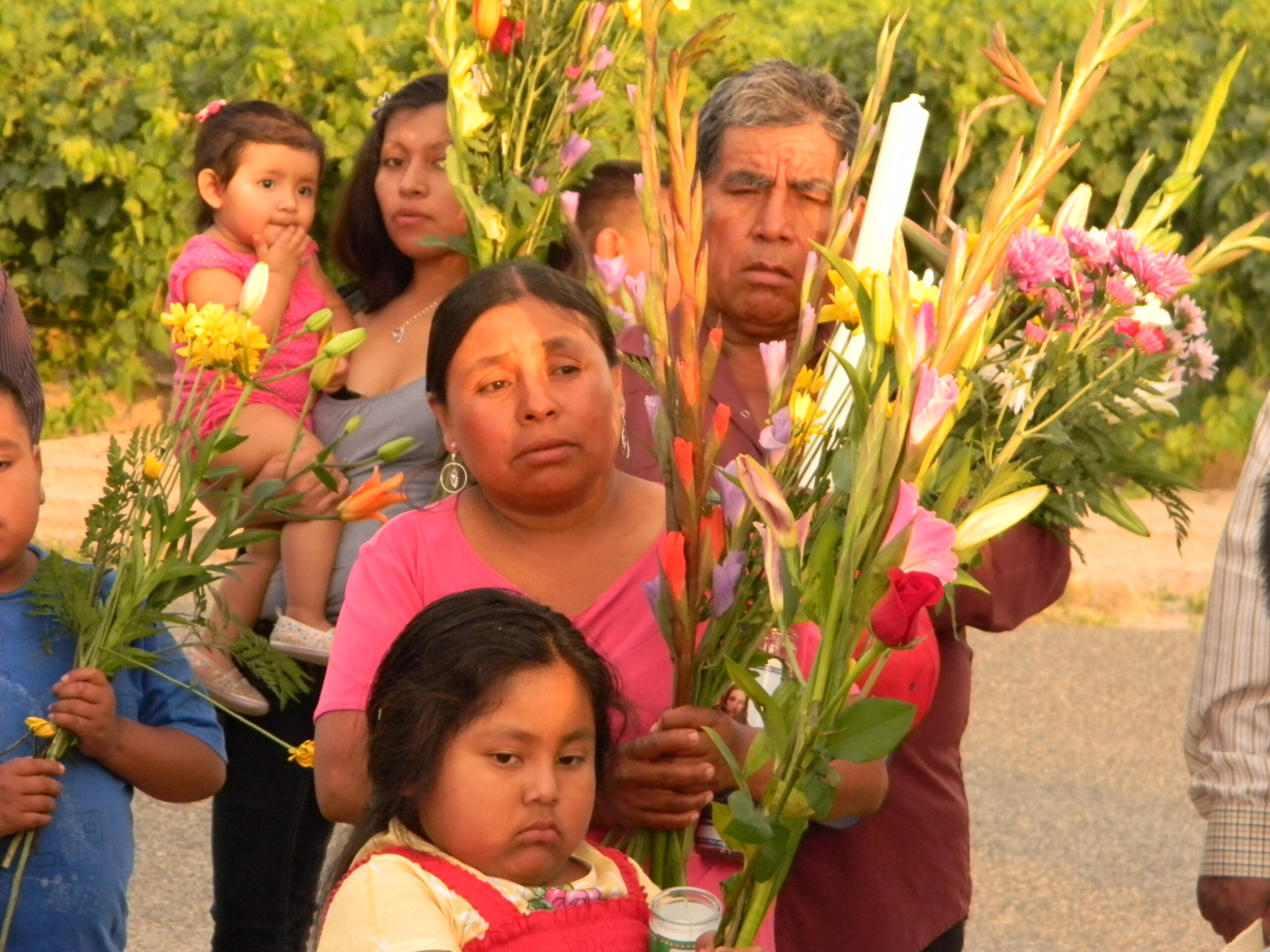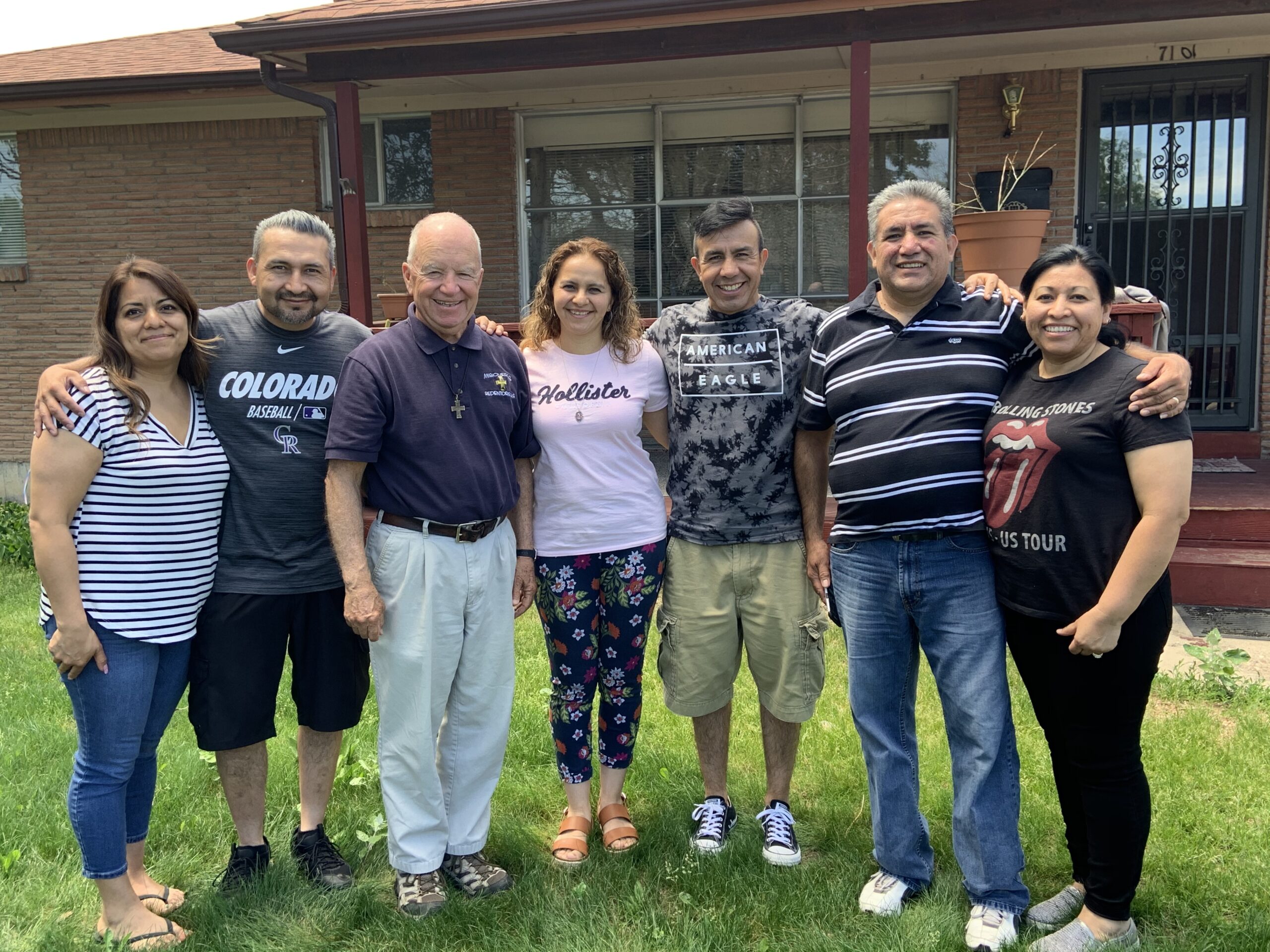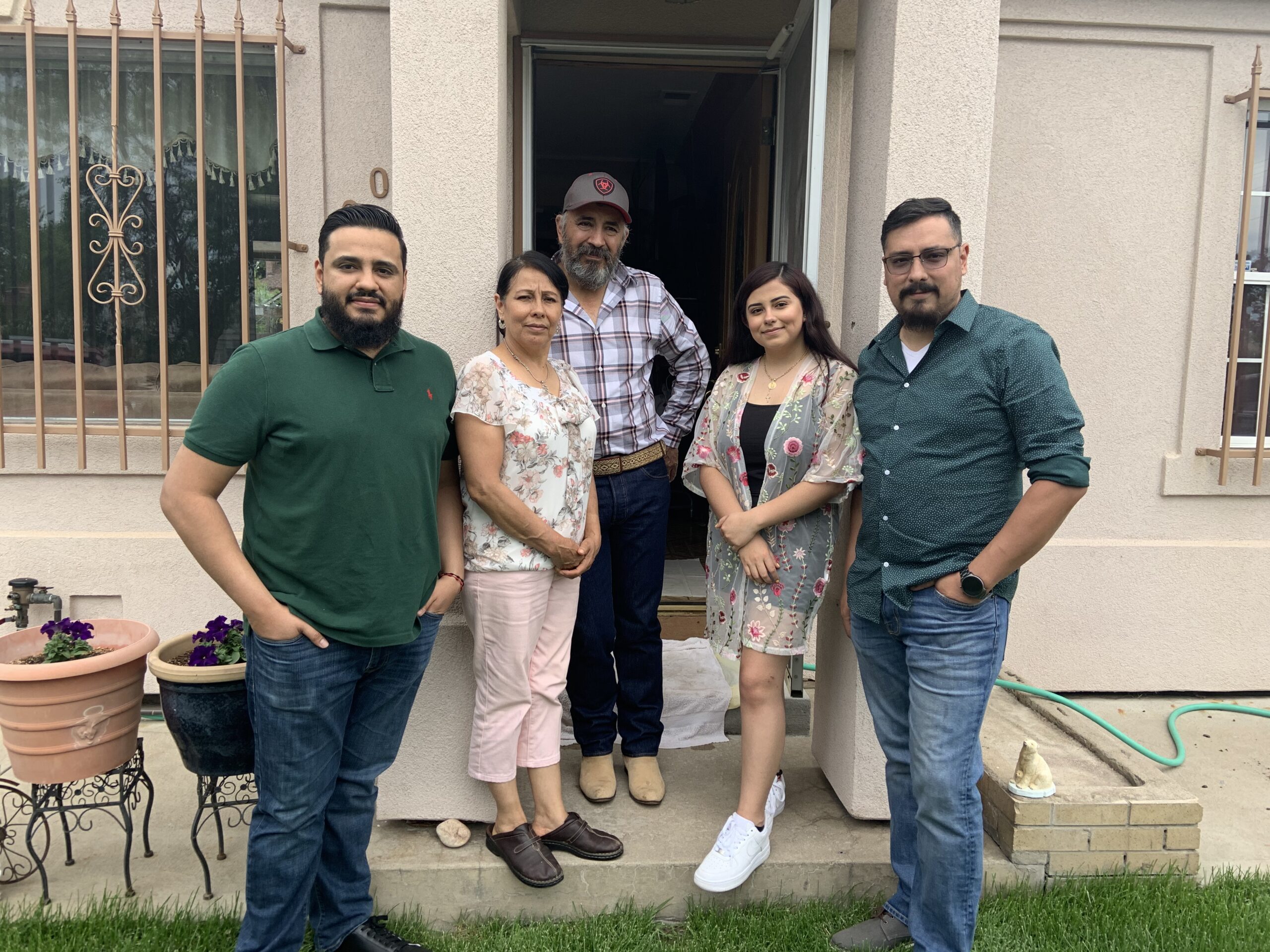19. Lent: Santuarios y Evangelización – Evangelization of indigenous people
Evangelización de pueblos indígenas
Cuando un misionero va a una comunidad extranjera, la primera preocupación es aprender el idioma. Sin embargo, se necesita mucho más que lenguaje antes de que uno pueda llevar el evangelio a una comunidad que no ha escuchado la “buena nueva”. El misionero aprende la historia, las costumbres y tradiciones del pueblo. Antes de predicar o enseñar, el misionero necesita relacionarse con la gente. Después de que el misionero experimente la vida en un nuevo país y honre la vida de la gente, puede comenzar la evangelización.
Los rituales religiosos indígenas que celebran el nacimiento, la transición a la edad adulta, el matrimonio y los ritos funerarios son oportunidades para sacralizar en el bautismo, la confirmación, el matrimonio y en la preparación para la muerte y la celebración de la vida de los fallecidos. Una pareja joven que se preparaba para casarse a la edad más joven permitida vino a mí para casarse. Visité con sus padres y varios familiares. Cada pareja presente se casó entre las edades de 14 y 17 años. Una pareja estuvo casada 42 años, otra 38, otras cinco parejas más de 20 años. Pregunté si otros miembros de su familia se casaban tan jóvenes. Dijeron que era raro que un miembro de sus familias se casara con más de 20 años. Pregunté cuántos de sus amigos o parientes estaban divorciados. Me miraron con extrañeza y dijeron, ninguno de los miembros de nuestra familia se ha divorciado. La fidelidad y la permanencia en el matrimonio eran simplemente un hecho en esa comunidad indígena.
Otras comunidades son testigos de una variedad de tradiciones culturales sagradas que los misioneros vieron y bendijeron cuando las comunidades adquirieron la fe católica. La incorporación de valores culturales en un contexto católico fue esencial en la conversión de las Américas.
Sigo buscando ayuda
Ayúdame a preparar un programa sacramental para niños con necesidades especiales y tiempo limitado de preparación.
Por favor comparte conmigo tus recuerdos. Escribir a: [email protected]
Evangelization of indigenous people
When a missionary goes to a foreign community, the first concern is learning the language of the people. Yet, there is much more than language needed before one can bring the gospel to a community that has not heard the “good news.” The missionary learns the history, the customs and traditions of the people. Before preaching or teaching, the missionary needs to enter a relationship with the people. After the missionary experiences life in a new country and honors the lives of the people, evangelization may begin.
Indigenous religious rituals celebrating birth, transition to adulthood, marriage and funeral rites are opportunities to sacralize in Baptism, Confirmation, Marriage and in preparing for death and celebrating the life of the recently departed. A young couple preparing for marriage at the earliest age permissible came to me to do their marriage. I went to meet their parents and several relatives. Each couple present married between the ages of 14 and 17 years of age. One couple was married 42 years, another 38, five other couples more than 20 years. I asked if others in their families married so young. They said that it was rare for a member of their community to marry over 20 years of age.
I asked how many of their friends or relatives were divorced. They looked at me strangely and said, none of our family members have divorced. Fidelity and permanence in marriage were simply a given in that indigenous community.
Other communities witness a variety of sacred cultural traditions that Catholic missionaries saw and blessed as the communities took on the Catholic faith. Incorporation of cultural values into a Catholic context was esteemed as missionaries took the gospel to indigenous communities in the Americas.
Still looking for help
Help me prepare a sacramental program for children with special needs and limited time for preparation.
Please share with me your memories. Write to: [email protected]
Oh Jesús, tú nos llamas: “Síganme”. Bendice, Señor, a todos los que acogen tu llamado. Puede que el camino no sea fácil, pero tenemos la confianza de que todo es posible si caminamos contigo. Que este viaje nos abra los ojos a las maravillas de tu amor por nosotros. Oramos por toda tu gente, por todos los creyentes e incrédulos, por los líderes y seguidores. Oramos por la sanación, el perdón, la compasión, la justicia y la paz. Oramos para que, al seguirte, nosotros también podamos ser pescadores de hombres. Bendícenos en nuestro viaje.
O Jesus, you call us, “Come after me.” Bless, O Lord, all who welcome your call. The path may not be easy, but we have confidence that all things are possible if we walk with you. May this journey, open our eyes to the wonders of your love for us. We pray for all your people, for all believers and unbelievers, for leaders and followers. We pray for healing, for forgiveness, for compassion, for justice, for peace. We pray that as we follow you, we too can be fishers of men. Bless us on our journey.





